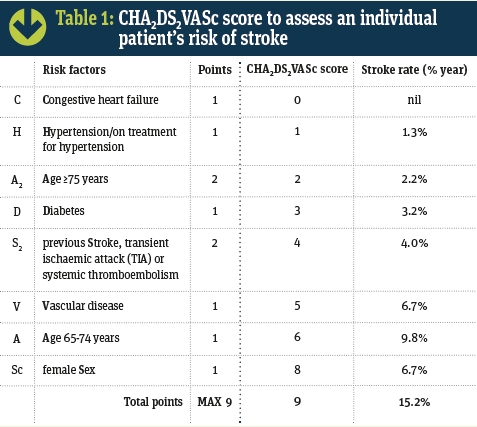
When a patient is diagnosed with AF (or atrial flutter), an assessment should be undertaken to assess the individual’s risk of stroke – the CHA2DS2VASc score is NICE-recommended and widely used in the NHS (see Table 1 above). The higher the score, the higher the risk of an AF-related stroke.
NICE recommends that, if the stroke risk calculation using CHA2DS2VASc is two or more, the patient should be offered anticoagulation. (Anticoagulation may also be considered in men with a score of one.)
Anticoagulation is considered a long-term treatment. If a patient is converted from AF back into sinus rhythm, anticoagulation should be continued based on the criteria already described. Aspirin is a much less effective option and is no longer recommended as an alternative to anticoagulation.
